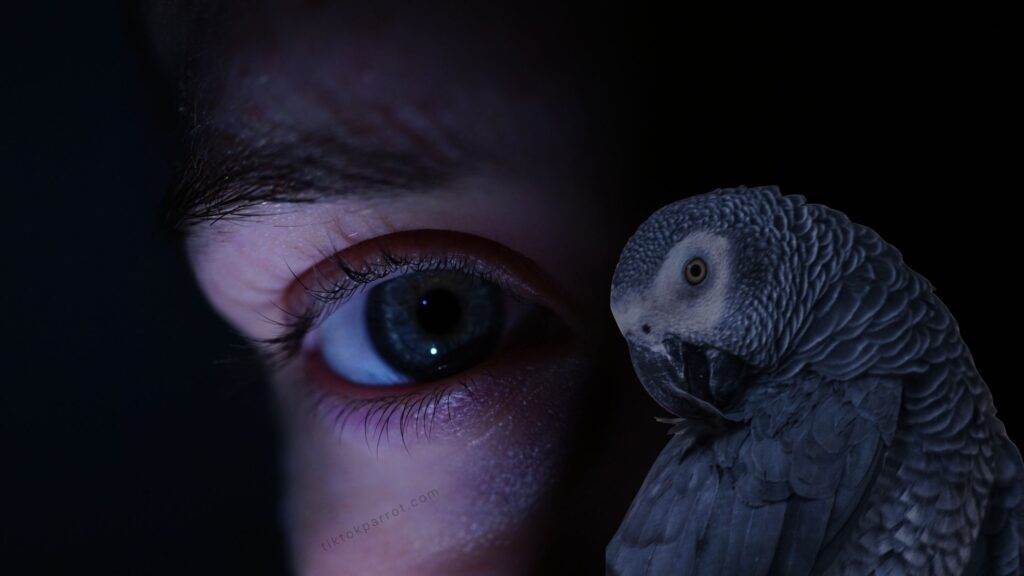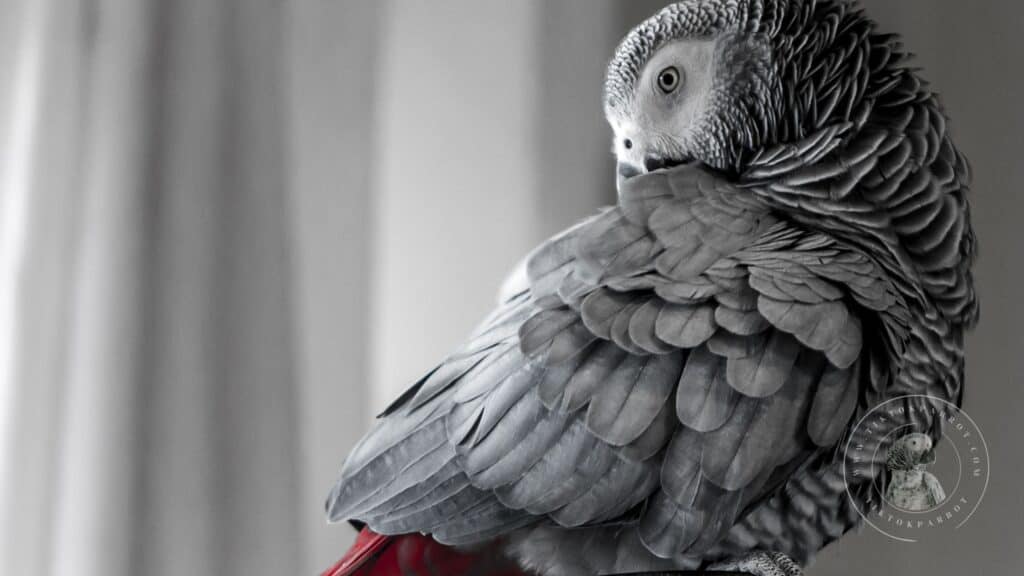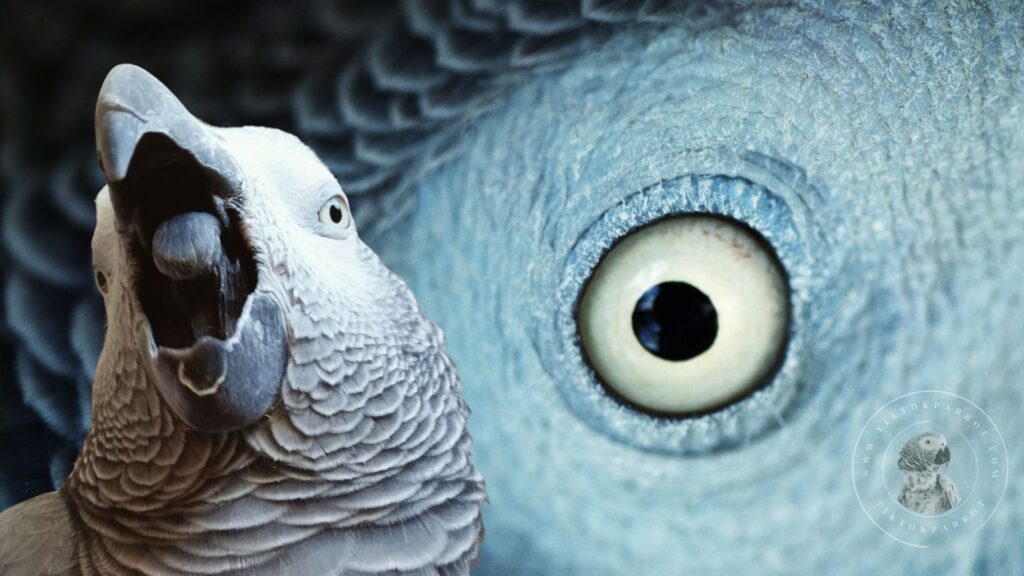Owning an African Grey Parrot is like having a toddler with wings – they’re super smart, a bit stubborn, and full of personality. But let’s be real, as fascinating as they are, we, as owners, can sometimes make mistakes that impact our feathered friend’s happiness and health.
Don’t worry; we’ve all been there. Whether you’re a first-time African Grey parent or you’ve been at it for years, this guide will walk you through the top 10 common mistakes people make when caring for these parrots. Hopefully, with a little humor and a lot of love, I’ll get you and your bird back on track!
Table of Contents
Discover the top 10 common mistakes African Grey parrot owners make and learn essential tips to improve your parrot’s health, happiness, and overall care.
1. Underestimating Their Intelligence

Let’s get one thing straight: African Greys are like the bird version of Einstein. Underestimate them, and you’ll soon find out they’re smarter than your average 5-year-old. One of the biggest mistakes owners make is thinking these birds are just like any other pet. Spoiler alert: they need mental stimulation, and lots of it. If you don’t keep them engaged, they’ll find their own entertainment – and trust me, you won’t like it when they start shredding your curtains or learning a new swear word from the TV.
What can you do? Invest in puzzle toys, rotate their toys regularly, and spend time teaching them tricks. A mentally stimulated African Grey is a happy African Grey!
2. Neglecting Social Interaction
Have you ever tried ignoring a child when they’re craving attention? Yeah, that’s how it feels for your parrot if you don’t spend enough time with them. African Greys are highly social creatures, and they thrive on interaction. Leaving them alone for too long? Prepare for a very grumpy bird or, worse, one that starts plucking out its feathers out of sheer boredom.
Neglecting socialization can lead to behavioral problems such as feather plucking, screaming, and aggression. To ensure your African Grey is happy and well-adjusted, spend quality time with them daily and provide them with opportunities for interaction.
The fix? Make them part of the family routine. Talk to them (even if it feels like a one-sided conversation), spend time with them, and let them hang out with you during the day. They need to feel like they belong.
3. Poor Diet Choices
Think feeding your African Grey a diet of seeds is enough? Think again. Seeds alone won’t cut it. These birds need a balanced diet, and a poor one can lead to health problems like vitamin deficiencies and obesity. If you’re still serving them an all-seed buffet, it’s time to upgrade their menu.
Also, overfeeding is a common mistake among parrot owners. African Greys have a high metabolism and can easily become overweight. Obesity can lead to health problems such as heart disease, diabetes, and joint issues. Offer your African Grey a balanced diet of high-quality parrot food and limit treats.
While treats can be a great way to reward your African Grey, overusing them can lead to obesity and behavioral problems. Offer treats in moderation and as part of a balanced diet.
What should they eat? Fresh fruits, vegetables (yes, leafy greens too), and formulated pellets should be the bulk of their diet. Variety is key – mix it up to keep their taste buds (and health) in check.
4. Not Providing Enough Space
Picture living your whole life in a closet. Sounds miserable, right? Your African Grey feels the same way in a small cage. These birds are active and need space to stretch their wings, climb, and explore. A cramped living space can lead to stress, frustration, and even physical issues.
Providing your African Grey with inadequate housing can negatively impact their physical and mental well-being. Ensure their cage is large enough to allow them to spread their wings and move freely. The cage should also be equipped with a variety of perches, toys, and enrichment activities.
Also a dirty cage can harbor bacteria and parasites, leading to health problems. Clean your African Grey’s cage regularly, removing any soiled bedding, food, or water dishes.
Solution? Get the largest cage you can afford, and let them out regularly for supervised playtime. Your bird should be able to fully extend their wings and move around comfortably in their home.
5. Ignoring Body Language

African Greys are master communicators. But instead of speaking in words (though some do!), they mostly speak in body language. Owners often make the mistake of not paying attention to the subtle signs their bird is giving them. Ignoring their signals can lead to bites or stressed-out birds.
African Greys spend a significant amount of time preening and grooming their feathers. Neglecting feather care can lead to health problems such as feather picking and bacterial infections. Regularly inspect your African Grey’s feathers for any signs of damage or abnormalities.
Overgrown nails can cause discomfort and interfere with your African Grey’s ability to perch and climb. Regularly trim your bird’s nails using a bird-safe nail clipper.
What to look for? Fluffed feathers might mean they’re relaxed, while a crouching posture with wings out could mean they’re about to take flight – or bite. Learn your bird’s unique signals and respect their space when they’re not in the mood to socialize.
6. Lack of Routine
If there’s one thing an African Grey loves, it’s a good routine. These birds thrive on consistency, and a lack of routine can cause anxiety or behavioral problems. Whether it’s meal times, sleep times, or playtimes, your feathered friend will appreciate knowing what to expect.
Tip: Set regular times for feeding, interaction, and sleep. It might take a bit of adjusting for you, but it will create a sense of security for your bird.
7. Overlooking Health Check-ups
Just like we need to visit the doctor for regular check-ups, your African Grey needs a vet who specializes in birds. Many owners skip this step, assuming that if their bird looks okay, they must be healthy. Big mistake! Birds are experts at hiding illness, and by the time they show symptoms, it might be too late.
Regular veterinary check-ups are essential for maintaining your African Grey’s health. Schedule annual check-ups and be sure to address any health concerns promptly.
What to do? Schedule regular vet visits and keep an eye out for subtle changes in behavior, appetite, or droppings, which could indicate something is wrong.
8. Not Enough Out-of-Cage Time
Think of it this way: would you want to stay in one room all day, every day? Didn’t think so. African Greys need out-of-cage time to exercise and explore. Too many owners make the mistake of keeping them cooped up, which leads to frustration and potential behavioral issues.
African Greys are naturally active and require regular exercise. Lack of exercise can lead to boredom, stress, and obesity. Allow your African Grey to fly freely in a safe room or provide them with plenty of toys and enrichment activities.
How to fix it? Set aside time every day for your bird to roam (safely!) outside the cage. You’ll both benefit from the bonding time, and your bird will thank you for the freedom.
9. Overreacting to Bites

If you’ve ever been on the receiving end of an African Grey bite, you know it’s no joke. But here’s where many owners go wrong: they overreact. Birds bite for a reason, and while it’s tempting to yell or punish them, it won’t solve the problem.
Behavioral problems such as screaming, biting, and feather plucking can be a sign of underlying stress or frustration. Ignoring these issues can only worsen the problem. If you’re experiencing behavioral issues with your African Grey, consult with an avian veterinarian or behaviorist.
What should you do instead? Stay calm, figure out why they bit you (were they scared? Did you miss their signals?), and address the root cause. Punishing them can damage your bond and won’t teach them anything.
10. Not Respecting Their Privacy
Even though African Greys are social birds, they still need their “me time.” Owners often make the mistake of not giving their bird enough quiet, alone time, which can lead to stress.
Tip: Make sure your bird has a quiet, safe space where they can retreat when they need a break. Respect their need for solitude every now and then.
My Closing Thoughts
I would say owning an African Grey is an adventure, full of ups, downs, and plenty of laughs. They’re intelligent, loving, and sometimes a bit of a handful – but hey, that’s what makes them special. Avoid these common mistakes, and you’ll build a strong, healthy relationship with your bird that’ll last a lifetime. Got your own tips or experiences? Drop them in the comments below. I would love to hear your stories!
If you liked this blog, please share it with your family and friends who might also find it helpful. If you love African Greys, join our community of Grey owners! You can meet other owners, share tips and learn from each other.
You might like to read these as well
For more useful content about African grey parrots, you can subscribe my site with your email to get notification upon publishing a new blog, the subscribe box you can see on the right side of this page. Also if you get an alert on your web browser while browsing my site, allow it and that will also give you an alert whenever I publish a new blog.
Stay safe and much love!




